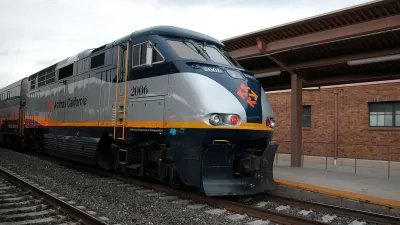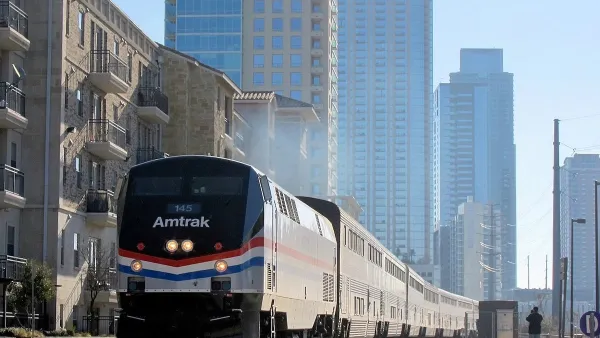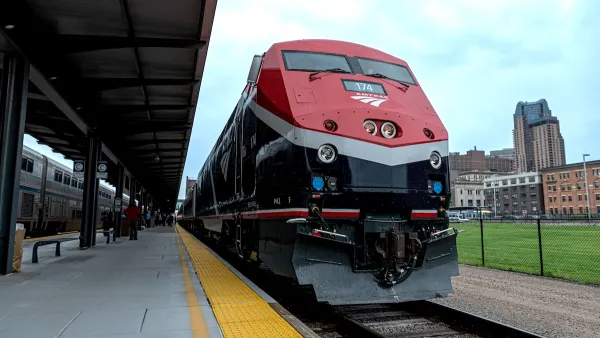Unless these states come to an agreement with Amtrak by Oct. 16 to help subsidize regional rail service, required by the Passenger Rail Investment & Improvement Act of 2008, Amtrak will cease operating them. Agreements were reached with 16 states.

This is our third update on the progress of states to reach funding agreements with Amtrak required by PRIIA to continue to operate 28 regional routes (less than 750 miles long) excluding the Northeast Corridor in 19 states; earlier ones were posted May 6 and Sept. 13.
"Time is running out," Amtrak spokesman Steve Kulm says. "We're working diligently with the remaining states."
In fact, "Amtrak has sent notices to states warning that the trains could stop running Oct. 16 if they don't reach the necessary agreements."
In California, Amtrak needs to sign deals with two agencies: the state transportation department [Caltrans], as well as the Capitol Corridor Joint Powers Authority, a partnership of six local transit agencies. Amtrak has reached an agreement with the joint authority but is still working to reach one with the transportation department, Kulm says.
Note, this is different than what we had posted in May when we pointed to the Pacific Surfliner trains between San Diego and San Luis Obispo that needed a funding agreement. The Capitol Corridor trains run from San Jose to Sacramento, with connecting "Thruway Bus Connections" (PDF) to distant locations (e.g. buses to/from San Jose and San Luis Obispo, where I am writing this story). Amtrak California, a division of Caltrans, helps fund and/or operate three intrastate routes.
Calls to the new California Transportation Agency seeking comment were not returned. But we'll provide an update here if more information is provided.
UPDATE (10/10/2013): In Governing, Ryan Holeywell reports: "California officials have approved a deal to provide an extra $19 million in annual funding for Amtrak, ensuring the passenger rail provider's service continues uninterrupted in the Golden State."
FULL STORY: With Deadline Approaching, 3 States Must Help Fund Amtrak or Lose Service

Planetizen Federal Action Tracker
A weekly monitor of how Trump’s orders and actions are impacting planners and planning in America.

Maui's Vacation Rental Debate Turns Ugly
Verbal attacks, misinformation campaigns and fistfights plague a high-stakes debate to convert thousands of vacation rentals into long-term housing.

Restaurant Patios Were a Pandemic Win — Why Were They so Hard to Keep?
Social distancing requirements and changes in travel patterns prompted cities to pilot new uses for street and sidewalk space. Then it got complicated.

In California Battle of Housing vs. Environment, Housing Just Won
A new state law significantly limits the power of CEQA, an environmental review law that served as a powerful tool for blocking new development.

Boulder Eliminates Parking Minimums Citywide
Officials estimate the cost of building a single underground parking space at up to $100,000.

Orange County, Florida Adopts Largest US “Sprawl Repair” Code
The ‘Orange Code’ seeks to rectify decades of sprawl-inducing, car-oriented development.
Urban Design for Planners 1: Software Tools
This six-course series explores essential urban design concepts using open source software and equips planners with the tools they need to participate fully in the urban design process.
Planning for Universal Design
Learn the tools for implementing Universal Design in planning regulations.
Heyer Gruel & Associates PA
JM Goldson LLC
Custer County Colorado
City of Camden Redevelopment Agency
City of Astoria
Transportation Research & Education Center (TREC) at Portland State University
Jefferson Parish Government
Camden Redevelopment Agency
City of Claremont





























